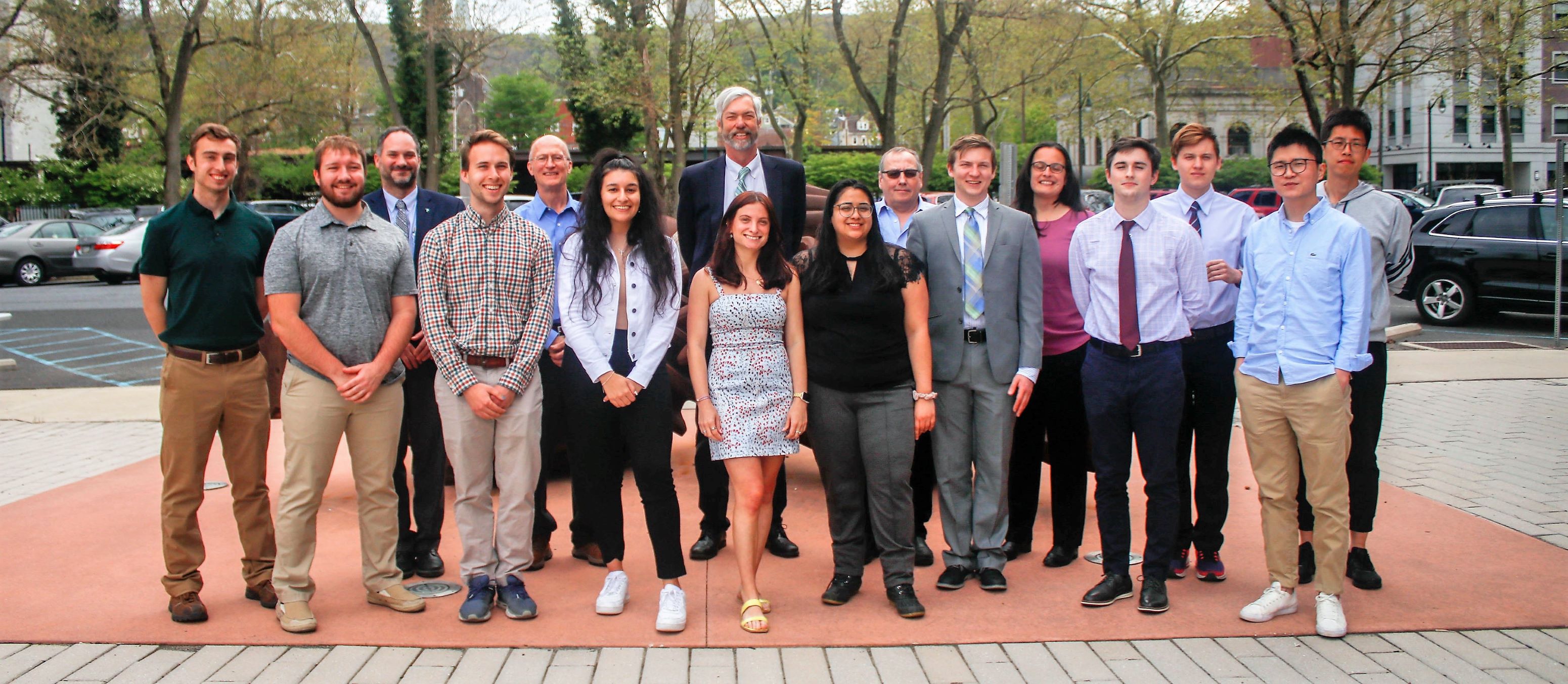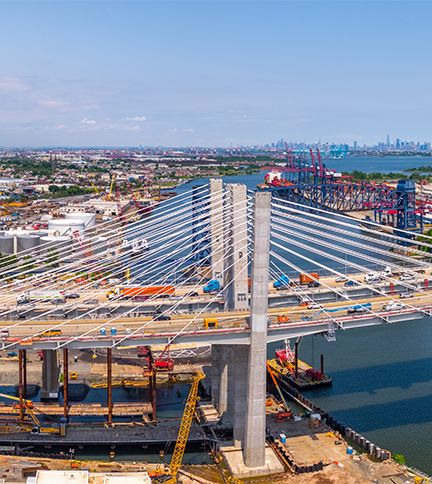
When the students in Lehigh’s Bridge System Design Class received the requirements for their class competition designing a long-span bridge over a major river, they didn’t know they were based on an actual bridge industry design-build proposal.
Nor were they aware that their work would be reviewed by engineers who designed a span—the new Goethals Bridge that connects New York’s Staten Island and Elizabeth, New Jersey—to meet those requirements in real life.
On May 3, 2022, the student teams presented overviews of their designs to the panel of prominent bridge engineers from Parsons, a global infrastructure and technology corporation (Professional Engineers Thomas Spoth, Seth Condel, Jonathan Taylor, and Nicole Melendez); the course’s instructor, Michael Joye, an adjunct professor in the Department of Civil and Environmental Engineering; and guests, including Lehigh faculty members and alumni and industry representatives. The event was held at the National Museum of Industrial History, located in the former Bethlehem Steel site.
After the presentations, the panel presented three awards: The box girder design by Gold Bridge Engineers (Dara Hecht ’22 and PhD students Siadong Ma and Huaian Zhang) was recognized as the most durable bridge. The tied arch/network cable bridge by JForce Constructors (Juliana DeThomasis ’22G, Joshua Gordon ’21 ’22G, Jake Graham ’21 ’22G, and Jack Payne ’21 ’22G) was honored as the most cost-effective design. And the cable-stayed bridge by RVTT Engineers (Tucker Bayda ’22, Riley Conklin ’22G, Vanessa Martinez ’22G, and Thomas Szewcyk ’21 ’22G) won the overall award for best bridge design.

A few days prior to the event, the students gave full-length presentations to the engineering panel and fielded questions.
“After we presented, we had a Q&A session with them for 30 minutes where they asked us engaging questions about things we may have overlooked to help push our learning,” says Conklin. “Being able to interact with these practicing engineers and get a glimpse into their thought process was invaluable and something I will carry forward into my first engineering job this summer.”
The Goethals engineers then presented their cable-stayed design to the students for comparison. The $1.5 billion mega-project, which was fully operational in 2018, replaced the original Goethals Bridge that had been in service for nearly 90 years.
“The panel’s experience on the Goethals was a wonderful contribution to the students’ work,” says Joye. “They were able to bring real-world experience to the very problem the students were solving. Several students remarked on how much they enjoyed being able to interact with practicing engineers on their designs.”
To kick off the competition back in February, Joye grouped the 11 students into three teams and presented them with the project requirements, including the number of lanes, the required span clearance of the river channel, maximum height restrictions, and soil conditions.
“I learned about the codes used in bridge design and how to implement them in our group design project,” says Martinez. “Also, learning how to analyze a highly indeterminate structure in a static (determinate) method to find initial dimensions and values was a highlight of my experience.”
“I thought that this was one of my best class experiences at Lehigh,” says Bayda. “The project provided me the opportunity to apply the knowledge and tools I learned professionally and academically to a real-world problem that I really didn’t know how to approach. Professor Joye made himself available to guide us along the way, and the engineering panel he brought was incredible. This is a class that improved my professional capabilities. I learned soft skills that you don't get from the traditional technical elective, which, in the grand scheme of things, is one of the most important parts of being an impactful engineer.”

